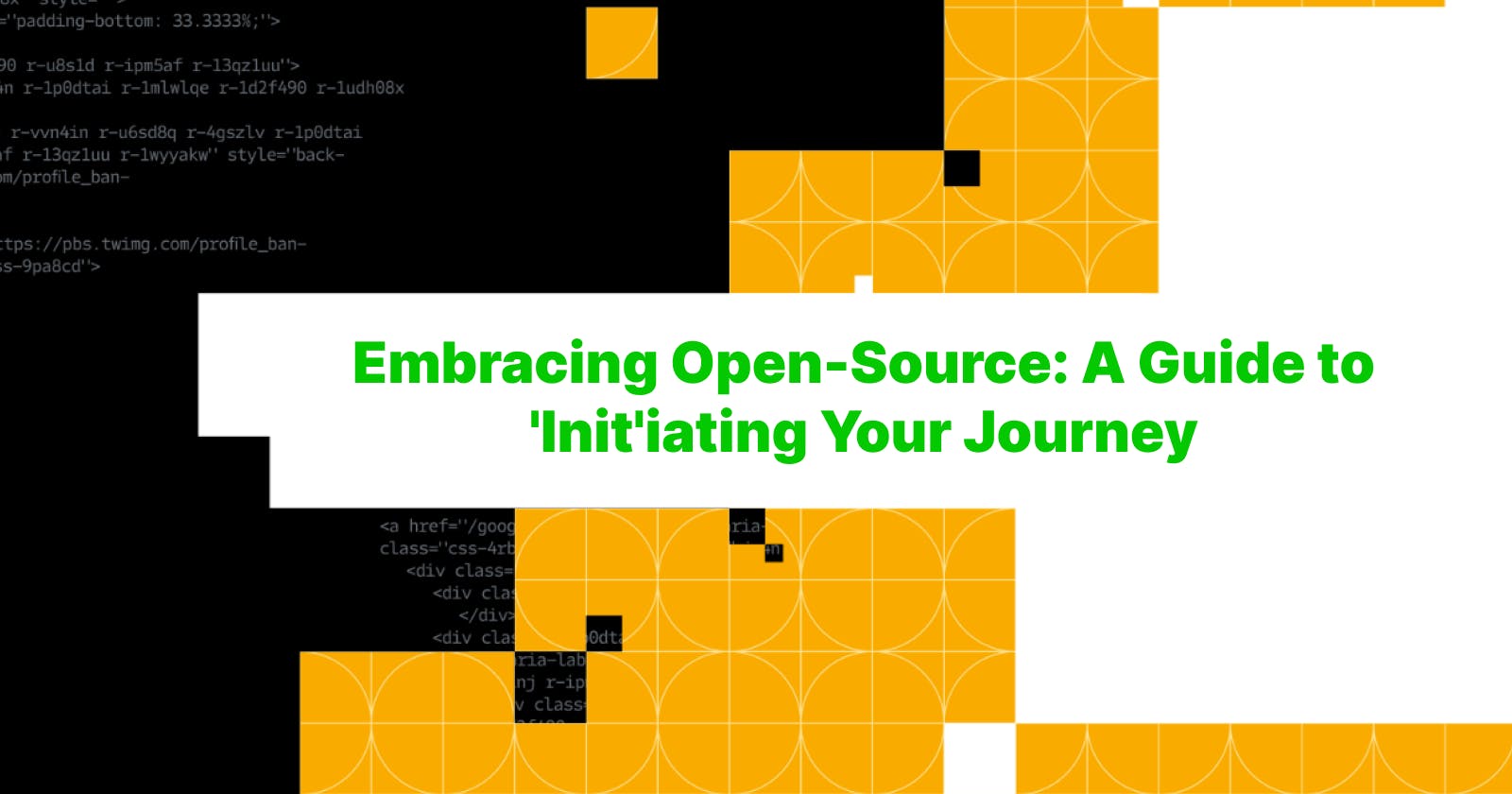In the dynamic realm of technology, open-source contributions stand as pillars of innovation and collaboration. If you've ever wondered about diving into the vast ocean of open-source software but felt a bit overwhelmed, fear not! This guide is your compass, ready to steer you on the exciting voyage of open-source contributions.
Understanding Open-Source: Unveiling the Magic
At its core, open-source refers to a philosophy where the source code of a software is made accessible to the public. This openness fosters an environment where developers worldwide can collaborate, contribute, and improve the software collectively. It's like a global potluck of code, where everyone brings their unique dish to create a marvelous feast of innovation and collaboration.
Why Contribute to Open-Source?
Learning and Growth: Open-source projects provide an excellent platform to learn from real-world scenarios, diverse coding styles, and collaboration techniques.
Networking: Engaging with open-source communities introduces you to like-minded individuals and industry professionals, expanding your network.
Resume Boost: Employers value open-source contributions. It showcases your skills, teamwork, and commitment to the tech community.
Getting Started: Your First Steps into the Open-Source Universe
1. Identify Your Interests:
Explore projects aligned with your passions, be it web development, data science, or machine learning. GitHub, GitLab, and Bitbucket are treasure troves of open-source projects waiting for contributors.
2. Learn Version Control:
Git and platforms like GitHub are fundamental tools in the open-source world. Familiarize yourself with basic Git commands and workflows to collaborate seamlessly.
3. Start Small:
Tackle beginner-friendly issues labeled as "good first issue" or "beginner-friendly." These are specifically curated for newcomers, offering an excellent starting point.
4. Engage with the Community:
Join forums, mailing lists, or Discord channels (you can find GDSC UPES' here) related to your chosen project. Observing discussions and asking questions can enhance your understanding and connect you with experienced contributors.
5. Respect Coding Guidelines:
Each project has its coding mannerisms and guidelines. Adhering to these shows your professionalism and makes the integration of your contributions smoother.
6. Seek Feedback:
Don’t hesitate to share your work and ask for feedback. Constructive criticism is invaluable for personal growth and improvement.
7. Be Persistent:
Open-source contributions might be challenging initially, but persistence is key. Every obstacle is a learning opportunity, so don’t be discouraged by setbacks.
Tools to Aid Your Journey
GitHub: The hub of open-source projects, where developers collaborate and contribute.
GitKraken/GitHub Desktop: User-friendly Git GUI tools to simplify version control (personally I would always recommend the CLI over the GUI interface).
Stack Overflow: An excellent platform to seek help when you’re stuck, offering solutions to a multitude of coding issues.
Hacktoberfest: An annual event encouraging open-source contributions, offering exciting rewards for participants.
Embrace the Adventure! 🌟
Embarking on your open-source journey is akin to setting sail on a grand adventure. You’ll encounter challenges, make new friends, and hone your skills in the process. Remember, open-source is not just about code; it's about community, collaboration, and continuous learning.
So, gear up, fellow developers! Embrace the open-source spirit, contribute passionately, and witness the magic of collective innovation unfolding before your eyes. Your journey begins with that first commit.
Follow us on:
Discord: Google DSC UPES Dehradun
Instagram: @GDSC_UPES
LinkedIn: Google DSC UPES Dehradun
GitHub: Google DSC UPES Dehradun
Happy coding! 🚀✨
This post was written by Akshit Gandotra
